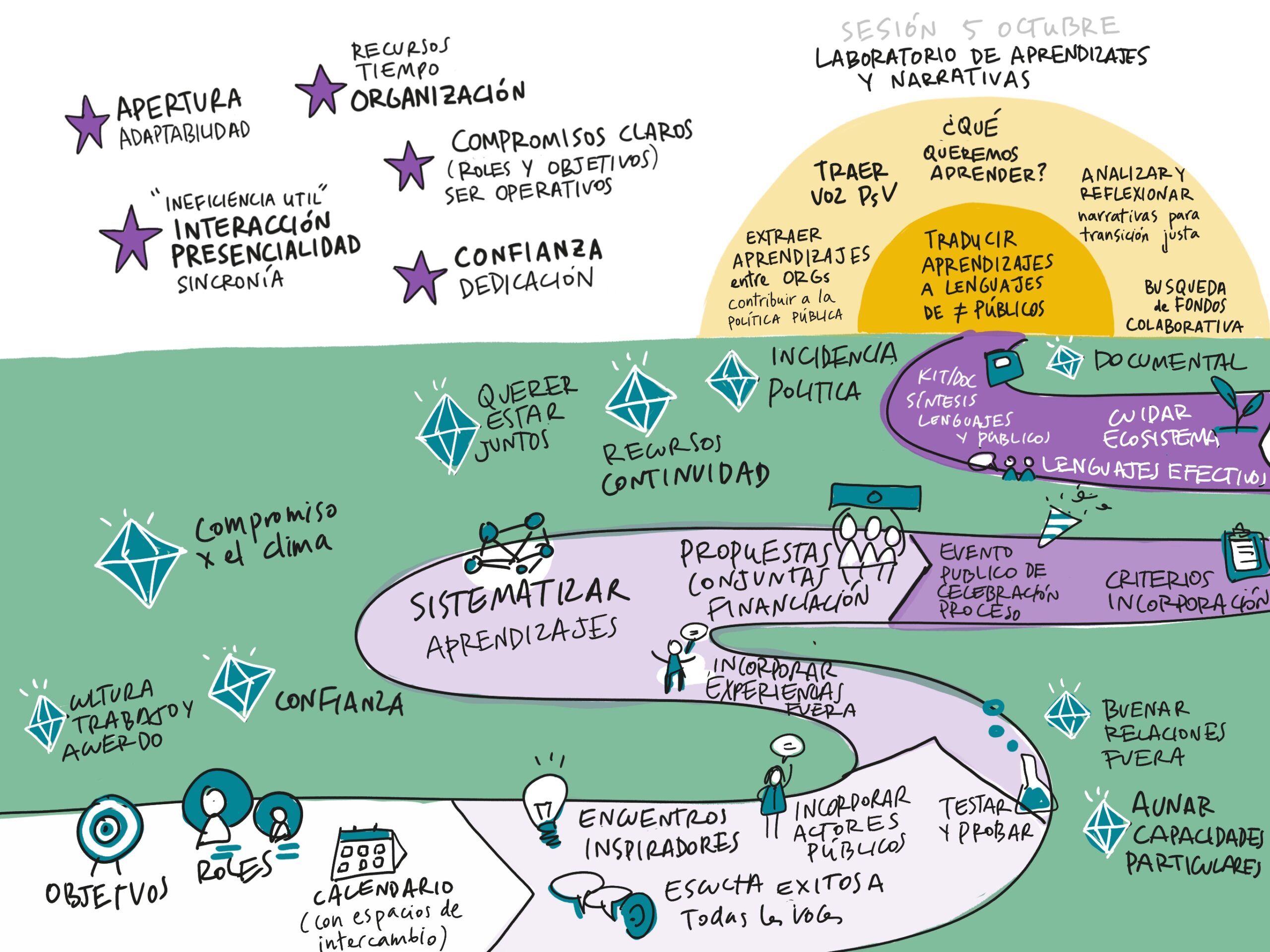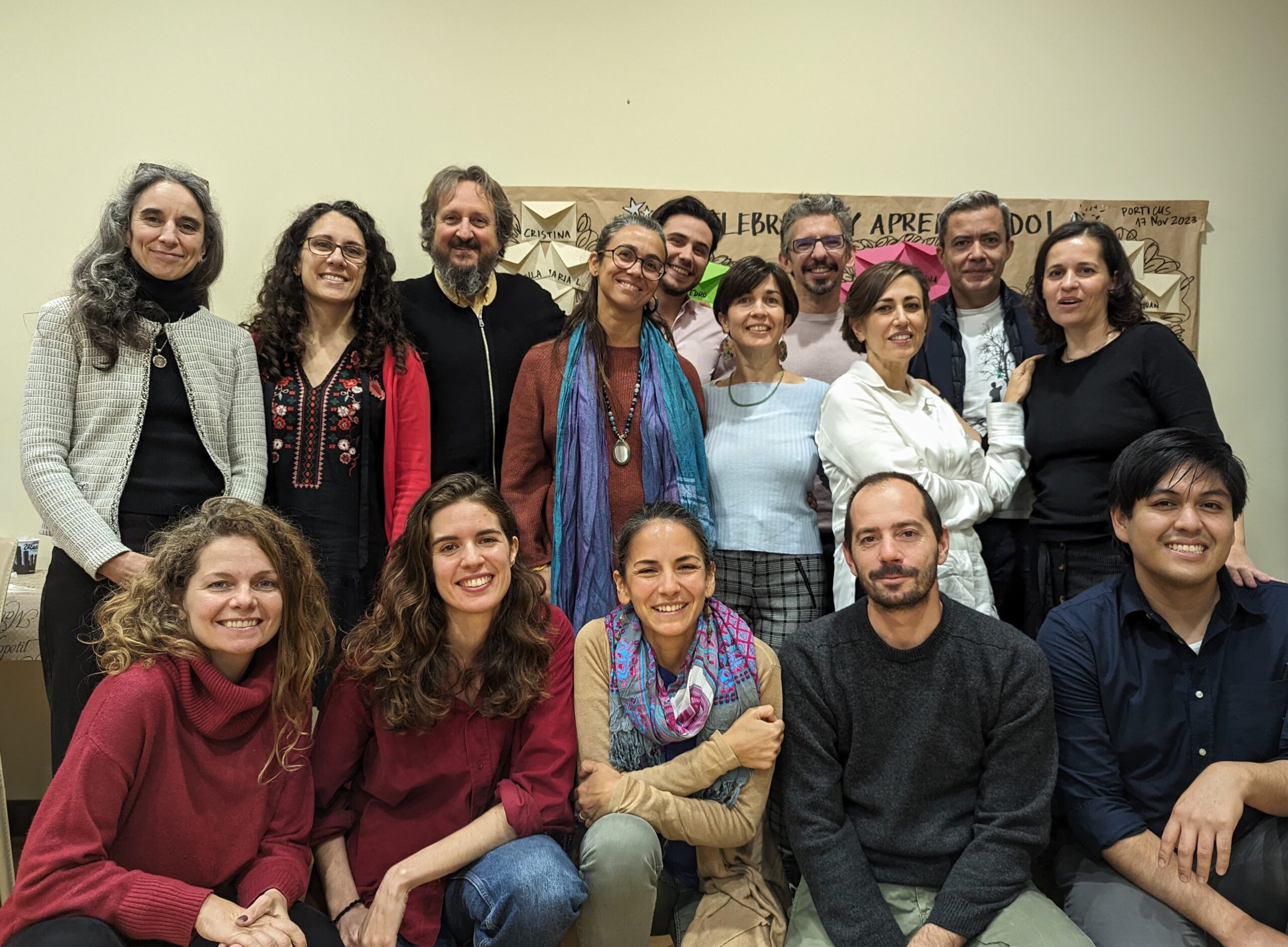The Fair Urban Transition (FUT) initiative was launched in 2022 with the goal of propelling cities towards sustainable, post-carbon futures, particularly focusing on vulnerable communities. In 2023, the project took an innovative turn. As Porticus began to reduce its involvement, a pioneering and unprecedented decision was made to introduce a co-creative, participatory budgeting process. This process was designed to democratically decide how funds should be allocated during the launch phase. As experts in the field of co-creation and participatory processes, we were invited to take part.
Our mission was to lead a participatory process, leveraging the collective wisdom of all stakeholders to design and accompany a co-creation process that would develop an implementation plan for the city of Madrid
The process has been a transformative journey, both for us as facilitators and for all partners involved. Let’s dive into some of the key aspects of this co-creative process, sharing insights and learnings that could inform future endeavors.
A co-creation process in Madrid
The essence of our work in Madrid was to co-design an implementation plan for the city as part of the global FUT initiative. This involved understanding and integrating the learnings from our and from a similar process in Bangalore, broadening the scope and enriching the outcomes. The ultimate goal was to embed institutional knowledge about meaningful participation within Porticus, enhancing our strategies and approaches.



Creating Spaces for Growth and Collaboration in Madrid’s Urban Program
One of our key goals was to create a safe, trusting, and collaborative space where partners could reflect on their work together. From these reflections, we aimed to develop new ideas that leveraged ecosystem synergies for the final plan of Madrid’s city program.
Our initial design was structured into five phases:
- Initial Contact Period: To understand the context and establish connections.
- In-Person Event in Madrid: To kick off the new project phase, facilitating mutual understanding and generating initial ideas.
- Group Work Sessions: To refine ideas emerged during the in-person session.
- Closing Session: To share final proposals and select the most suitable for implementation.
- Retrospective and Closing Session: Our approach alternated between divergent phases—thinking in an unstructured manner and generating options—and convergent phases, where strategic decisions were made.
From the first session in Madrid, it became clear we needed to expand the divergent phase, allowing more room for creativity and for:
- Personal introductions (not everyone was equally acquainted) and a deeper understanding of each organization’s expertise to establish basic collaboration agreements.
- More time for each organization to open up, expressing their fears and needs.
- Reflection Time: Going slow to leave room for creativity.
- We eventually opened additional spaces to address open questions after the Madrid event and to closely accompany each organization, allowing them to express their truths.
The flexibility of this process fostered moments of genuine honesty and generosity. Such moments arise when collaboration and communal interest take precedence over competition and individual interests.
Key Learnings and reflections
Trust Building: Trust is the foundation of all co-creation. It requires a deliberate and continuous effort to create and nurture fertile ground for collaboration.
Reality Over Assumptions: In co-creation, the assumptions we bring must give way to the emerging reality.
Facilitator’s Role: As facilitators, we must know when to step back so emerging leaders can steer the ship. When it seems adrift amid chaos, that’s when they rise and guide it to safety. Identifying diverse leadership has also been a key outcome of this process.
Ultimately, the success of the process was not just in achieving the intended goal but in it being a journey of transformation and mutual growth.
We’re still on this journey together, and that’s why we’re here today—to continue learning from Irene and Kois, partners in the FUT ecosystem, about their experiences through this process.
[foogallery id=”6860″]

